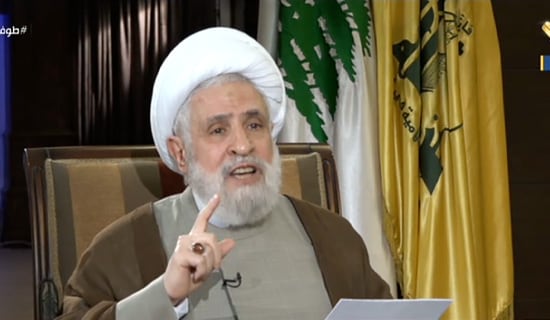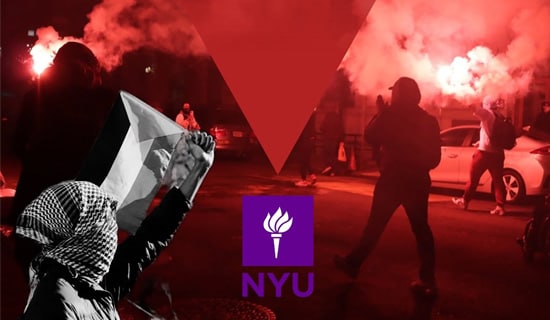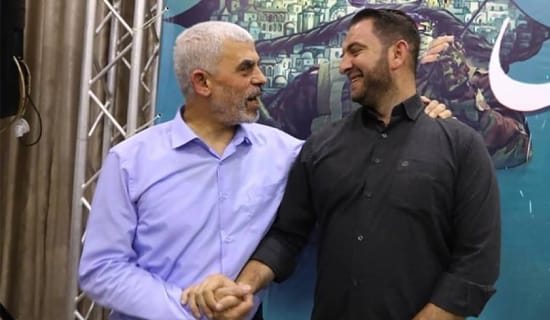Political scientist professor and commentator Gevorg Mirzayan claims that Western experts have discovered that Moscow has succeeded in forging relations even with those countries that are openly hostile to each other. According to Mirzayan, Russia is willing to make firm commitments only to countries in the post-Soviet space. Outside that area, the Kremlin steers clear of dubious alliances and superfluous confrontations. This results in countries lining up to seek Russian support.
Mirzayan's analysis follows below:[1]
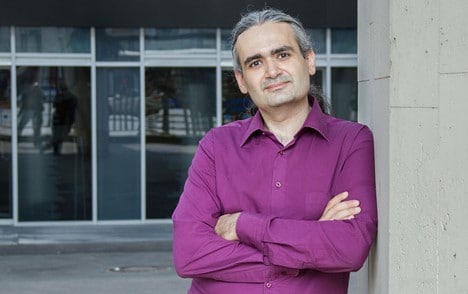
Gevorg Mirzayan (Source: Ru.sputnik.md)
"In foreign policy, the Russian leadership has been compared with various characters. The Western media call it a virtual Sauron, striving to conquer the free lands of Middle-earth. In the mouth of President Obama, it is a gas station attendant (with Russia being compared to a gas station).
"However, a growing number of experts compare it to the equilibrist who traverses regional conflicts over a very thin rope. Japanese, Indian, Chinese, Arab and even Western experts agree that Russia somehow manages to stay out of these conflicts and maintain balanced relations with different states, including those that are hostile to each other, i.e. Japan and China, India and China, Iran and Saudi Arabia, Israel and Arab states.
"The essence of Russian diplomacy is quite simple, 'The logic of Russian foreign policy consists of strengthening Russia’s role as an independent center of power, as a pole in a multipolar world.
"In order to achieve this one has to have a network of balanced partnerships with all the key regional centers of power around the world, not entering alliances with them and not taking permanent obligations (of course, I don’t mean post-Soviet countries. For countries of the former USSR completely different rules are in operation and are predicated on alliances and commitments).
"'And the more such partners we [Russia] have, the better,' said Dmitry Suslov, deputy director of the Center for Comprehensive European and International Studies at the Higher School of Economics.
"Some, of course, might argue that such nature of Russian foreign policy can be attributed to its general diplomatic indecisiveness (Moscow usually 'expresses concern'), lack of resources, or reliability problems. A number of Iranian and Chinese diplomats assured the author of this article that the moment the West welcomes Russia back, it will be drawn in this direction again. However, the reason lies elsewhere.
SUPPORT OUR WORK

"'The Russian strategy reflects the global trend of increasingly chaotic international relations and reinforced global disorder. Current international relations are much more turbulent than that of the Cold War period of bipolar confrontation. Traditional commitments have become rather burdensome for large powers, while their freedom of maneuver has strengthened. By not assuming any firm commitments or building Russian-centric blocs outside the former Soviet Union, Moscow is simply following global trends,' argued Dmitry Suslov.
"By the way, Trump picked up on this trend, when he tried to revise US foreign policy. The deep state, which opposed the US president, prevented him from doing so. There is no such fifth column in Russia.
"Russia has been most successful in this policy in the Middle East.
"Despite Russia’s involvement in the Syrian war (in which it was opposed by Qatar, Saudi Arabia, Israel, and at a certain point Turkey), and regional and global media’s attempts to position Moscow as an ally of the Shiite bloc fighting against the Sunni bloc, the Kremlin managed not only to maintain relations with its rivals in the Syrian game, but in fact strengthen them. This happened largely due to the fact that differences with Moscow didn’t spill over beyond the bounds of the Syrian conflict.
"For example, Russian [forces] along with Iranian troops clashed with pro-Saudi terrorists in Syria. However, the kremlin didn’t participate in Iran’s operations against Saudi Arabia in Yemen. And the results were not long in coming.
"'Due to this strategy, Russia has turned into the most influential external player in the Middle East, after the US, or maybe even its equal .In the interim , Moscow has become the only extra-regional player that has balanced relations with all Middle Eastern countries without exception. This allows the Kremlin to play a key role in the region without assuming firm obligations or limiting its options. In addition, it confers benefits in commercial-economic ties, arms and food supplies, etc.,' claimed Dmitry Suslov."
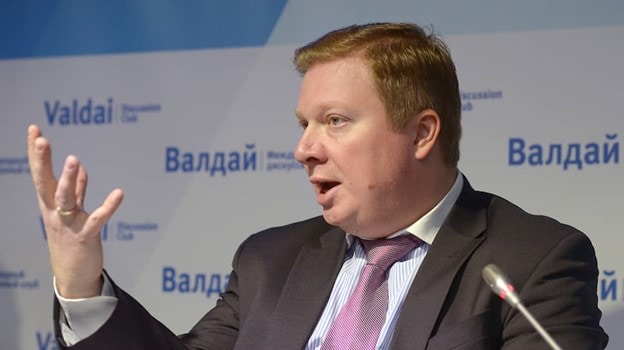
Dmitry Suslov (Source: Kommersant.ru)
"The situation in South and East Asia is more difficult. True, Moscow managed to maintain equidistance in relations with the two other points in the 'Russia-India-China' triangle, as well as in 'Russia-Vietnam-China' one. However, the Kremlin failed to build similar framework with Japan or even South Korea. Both states are very close US allies and are wary of taking major steps towards Moscow. In turn, the Land of the Rising Sun has a territorial conflict with Russia.
"According to experts, the thing is that Russia has no alternative [foreign policy], or any worthy alternative (to be more precise).
"'Only the current strategy will allow Moscow to strengthen its role as an important world global center of power. Otherwise, Russia will turn into just a junior partner of China, which is unacceptable for the former. Thus, Moscow needs to both intensify its partnership with China and develop relations with other centers of power in Asia, i.e. India, Japan, ASEAN member-states,' argued Dmitry Suslov. Additionally, it should be done bearing in mind the actual difficulties, which (and this must also be remembered) will gradually be offset. Japanese and other East Asian experts recognize that the stronger and more aggressive China becomes, the more the region’s countries seek a counterbalance to it in the form of ties with the Kremlin.
"As for Europe, Russian multi-directional policy encounters problems there. Moscow is not trying to mediate in intra-European conflicts (for instance, in the conflict between Poland and Hungary on one side and Brussels on the other) nor is it uses these conflicts to strengthen its influence on such countries. According to experts, the reason for such state of affairs is rather simple: any cooperation with Moscow is a highly politicized affaire.
"If [the Kremlin] provides direct support to the Hungarians, then the label 'Kremlin’ agent' might stick to Prime Minister Viktor Orban. And [in order to escape it ], the Hungarians would have to downsize their relations with Russia. As far as Poland is concerned, support for President Andrzej Duda and the leader of the Law and Justice party Jaroslaw Kaczynski is out of the question, since the two perceive Russia as a historic enemy. They have even more hostile inclination towards our country than the EU leadership. Therefore, their support won’t make any difference for us and won’t pay off in an improvement of Russian-Polish relations,' argued RIAC [Russian International Affairs Council] expert, Vadim Trukhachev.
"'The relations with the EU are complicated enough as it is, and it makes no sense to escalate them based on the principle of '[the witch] Baba Yaga Opposes,' explained senior researcher at IMEMO RAN, Dmitry Ofitserov-Belsky.
"At some point, however, even Europe will understand the need to develop relations with Moscow. A number of regional leaders have already welcomed this Russian multi-directional policy and benefited from it. They do it not only due to fear of China, but also due to their own ambitions. 'A growing independence of regional centers of power is one of the global trends,' said Dmitry Suslov.
"Skeptics might cite the example of Europe, in which a number of non-NATO member-states aspire to join the alliance and destroy their independence. However, neither Ukraine, nor Georgia, let alone Moldova, can be called regional centers of power. Whereas, Turkey, while not withdrawing from NATO, by virtue of Russia openly accumulates independence within the Western bloc, for instance in the field of arms deals that have political overtones (supply of S-400 systems); in the Syrian direction (through deals with Russia and Iran), and at the Caucasus (where Turkey is engaged in diminishing the Western influence with the help of Russia).
"Egypt is too trying to gain more independence through cooperation with Moscow, not only from the US, but also from Saudi Arabia, which becomes a more toxic player with each passing year. The latter, by the way, is also trying to get closer to Moscow, so that the Kremlin would facilitate its ambitions for leadership in the Persian Gulf.
"Thus, the equilibrist power is in demand worldwide. The main task now is not to fall off the [high] wire."
[1] Vz.ru, August 13, 2021.


